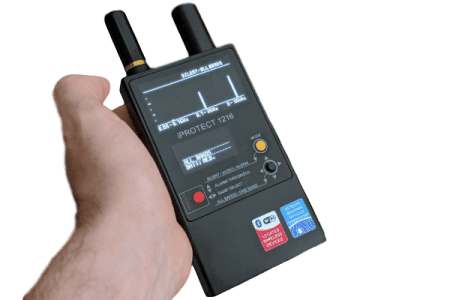Is My Child Being Bullied Online? Cyberbullying Infographic
Bullying is no longer limited to the school playground, cyberbullying on the internet is a serious problem and as many as 7 in 10 young people are affected. This common form of harassment is a serious matter and should never be ignored. If you are asking yourself; is my child is being bullied online, then it’s time to face up to it and discover the truth. Read on to learn about how to identify the key signs and learn what you can do to take cautionary measures using this cyberbullying infographic.
What Is Cyberbullying?
Cyberbullying is the act of harassing, intimidating or threatening somebody through the use of communications such as text, email, instant messaging through a range of social networking sites including Facebook and Twitter. Children of all ages can be affected, particularly due to easy access to a range of technologies including mobile phones, laptops, computers and tablets.
“Cyber bullies can hide behind a mask of anonymity online and do not need direct physical access to their victims to do unimaginable harm.” – Anna Maria Chavez
An electronic form of torment, online harassment can take place at anytime, anywhere and with anybody. It is becoming increasingly easier for children as young as 8/9 to be involved in these types of online crimes and is usually repeated consistently with deliberately offensive or threatening intentions.
The internet is such a fast paced environment; posts, tweets and images can be shared and immediately viewed and shared again with others, a snowball or viral effect can then occur. Bullying online can also appear in the form of a child posting rumours or spreading gossip about someone else and can lead to the extent of personally victimising others by disclosing material that could seriously humiliate others. The internet can easily form hatred in our children’s minds and because of this, a growing amount become victims of negative communication which can ultimately result in depression and even death.
In addition to the places on the internet where bullying frequently occurs, like social media platforms and instant messaging including Snapchat, WhatsApp, BBM and iMessage, cyberbullying can also occur through gaming. Via online gaming chat features the uneducated and vulnerable can easily fall victim to being ridiculed and picked on.
What Types Of Cyberbullying Are There?
There are a variety of different types of cyberbullying that are now commonplace online, these include;
- Exclusion: Intentionally leaving somebody out of group instant messaging or other online group activities.
- Gossip: Discussing others online in a derogatory and hurtful manner and purposefully belittling somebody online.
- Harassment: Sending offensive or malicious messages to an individual or group, usually repeated multiple times.
- Impersonation: Pretending to be somebody else online when sending false or harmful messages. This involves creating a fake or anonymous identity to harass or send malicious messages to another online user.
- Flaming: An online fight exchanged via emails, instant messaging or chat rooms. A type of public bullying that directs to harsh language or images to a specific person.
- Cyberstalking: Continuous harassment including threats of physical harm. Threatening someone’s safety.
- Outing/Trickery: Sharing personal or private information about an individual or group, usually includes pictures or videos. These could include secrets, or embarrassing information and forwarding it to others.
- Denigration: Posting derogatory and untrue information online through a website, blog or poll and sharing this through email or social media that could be considered humiliating, insulting or embarrassing for the victim.
- Happy slapping participation: Using a camera or phone to videotape a bullying incident and sharing it online via social media, instant messaging, email or through a website.
- Trolling: Purposely provoking people to anger to attempt to get them to inappropriately respond.
Cyberbullying sadly doesn’t switch off and is able to take place day or night – even when he or she is alone. Unlike regular bullying, it is difficult to escape online torment as it can take place in so many different ways. As social posts can be distributed to such a wide audience in an instant, victims can feel ashamed and become withdrawn.
“Bullies behind keyboards are still bullies”
Shocking Facts About Online Bullying
- 7 in 10 young people have been victims of internet bullying
- 10% of bullied teenagers have attempted suicide
- 20% of kids think about suicide, and 1 in 10 attempt it.
- 87% of today’s youth have experienced cyberbullying
- 21% of children have received threatening or nasty messages via email or other forms of media.
- 30% of young people have gone on to self-harm as a result of bullying
- 94% of children own a mobile phone – smartphones are the most common devices used for cyberbullying
- Over the last three years there has been an 87% increase in the number of ChildLine’s counselling sessions about online bullying
Cyberbullying can have a hugely negative impact on a child. Being a victim of this form of bullying can make a child feel powerless, vulnerable and worried for their own safety. Because bullying is not limited, a child can be victimised directly from their own homes, perhaps causing feelings of no escape. Intensified feelings of humiliation and embarrassment can occur which could lead to the child not wanting to attend school or participate in social occasions due to fear and feelings of indignity.
The loneliness and isolation of being a victim can truly take its toll, victims are more likely to experience anxiety and depression, resulting in low self-esteem and are more likely to lose focus in school work. Children who are cyber-bullied are at much higher risk of mental health problems.
Is My Child being Cyber-Bullied?
The risk of suicide is increased by cyber-bullied children, the constant torment can cause them to feel utterly hopeless, therefore it is important to recognise the signs. Many concerned parents are both openly and covertly monitoring their children’s use of technology, this can help ensure that they are not involved in any form of cyberbullying, whether they may be the victim or the bully.
Knowing how to deal with the situation as a parent can be extremely tough. There is no immediate solution but there are a number of places to start. Certain children act in completely different ways and it is important to spot any abnormalities.
If you believe your child could be a victim you should look for the obvious signs which include:
- Avoiding their mobile device or computer which could appear abnormal Alternatively spending much more time texting or gaming; developing an obsession for online media
- Appearing withdrawn, upset or angry Reluctance or refusal to leave the house or attend school
- Having trouble sleeping or showing less interest in eating
- Falling behind in school work
Why is it important to understand the social implication of cyberbullying? Cyber Bullying by Kidzmet explains why.
Keep up to date with the latest bullying and cyberbully news on Twitter with these hashtags: #bullying and #cyberbully
— Dr. John Pokea (@drpokea) 6 February 2016
58% of cyber-bullied children do not tell their parents through fear of them potentially making the incident worse by calling the bully’s parents or taking away internet privileges. Parents are naturally protective of their children but it is also important to get into their minds and understand how they wish to deal with what they’re going through.
If you are sure that your child is being cyber-bullied you should start by taking a calm approach and talk with them about what they’re going through. Advising your child to block all suspected perpetrators on all forms of social media is a good place to start.
Remember, your child must be supported at all times, the ultimate goal is to get the it to stop and to restore your child’s happiness. Overreaction and under-reaction are not good solutions, as a sensitive subject, any form of online harassment must be discussed at length.
Remember, online abuse isn’t secret!
If your child is being bullied by anonymous names, these can always be traced back to the website, email hosting server providers and even personal IP addresses.
External support – Family Lives offer a range of support networks 24/7 including confidential helplines, online chats and email support. The Department for Education offers detailed advice for parents and carers on cyberbullying.
Could Your Child Be Cyberbullying Others?
If you are worried about the fact that your child may be cyberbullying others, you’re not alone. Research and studies show that between 10-20% of students will cyberbully at some point.
Acknowledgement that there is a problem is the first big step, it can be hard to admit that your child could be involved in such a difficult situation. Recognising the signs is the most important thing as well as paying attention to his or hers personality and observing any changes.
If you suspect that your child is picking on others online you may notice some of the following:
- They are being secretive about their online activity
- Appearing nervous or jumpy when using technological communication devices
- Spending time with a certain group of friends that act in an uncaring or mean manner
- Appear unsympathetic if their words or actions affect others
- Excessive amounts of time on their mobile phone/laptop/tablet
If you discover that your child is bullying other children electronically it is important to leave your personal feelings separate and to initially understand why, who, how and when.
Identify the outcomes you’d like to achieve with your child, getting them to listen is a good start. Acceptance that this behaviour is completely wrong is a step in the right direction. The situation is sensitive whether you are the parent of a bully or a victim.
You can gain a better understanding of the situation by closely monitoring their technology access and communicating with their teachers regarding any unusual behaviour. The cruelty of their actions must be fully understood by them in order for the both of you to move forward.
How To Monitor Your Child’s Computer And Mobile Phone
At Spy Equipment UK we provide a variety of solutions and help, so you can monitor all of your child’s computer and mobile phone activity, without them even knowing. This will give you the power to intervene at the right time and will give you piece of mind nothing untoward is occurring in their lives. Here are a few suggestions of spy equipment we frequently supply to concerned parents and carers.
Computer Monitoring solution
Spy Cobra Deluxe – part of our computer monitoring range – This is a completely undetectable monitoring solution. It logs key strokes (every key that his struck on the keyboard), takes screen snapshots, remembers all websites visited and detects encrypted password keys and the information is sent to an email of your choice.
Phone Monitoring solution
Android Ultra Spy Phone Software – Receive via email recorded phone calls made or received by the monitored phones listening device, get copies of SMS messages (including text content), Internet browsing history (native phone browser), Pictures (Captures, screenshots, IM pictures), get GPS locations of where the phone is every 20 minutes, see a list of applications on the phone, view contacts as they are updated. In addition you can monitor WhatsApp, Facebook Messenger, Skype and Viber text conversations and images.
Galaxy S7 Ultra Spy Phone (refurbished) – This is a fully functional Smartphone that has been installed with the Android specialist spy phone software (above) that can monitor a wider range of phone user activity than any other spy phone available.
Call 024 7601 0588 or contact us to discuss your situation with a surveillance specialist today.
Sources
- https://gradesfixer.com/blog/facts-and-statistics-on-bullying/
- https://www.independent.co.uk/news/education/education-news/report-10-bullied-teenagers-have-tried-commit-suicide-9262874.html
- https://www.stompoutbullying.org
- https://www.42bis.nl/2015/10/infographic-cyber-bullying-and-e-safety-facts/
- https://en.wikipedia.org/wiki/Cyberbullying














